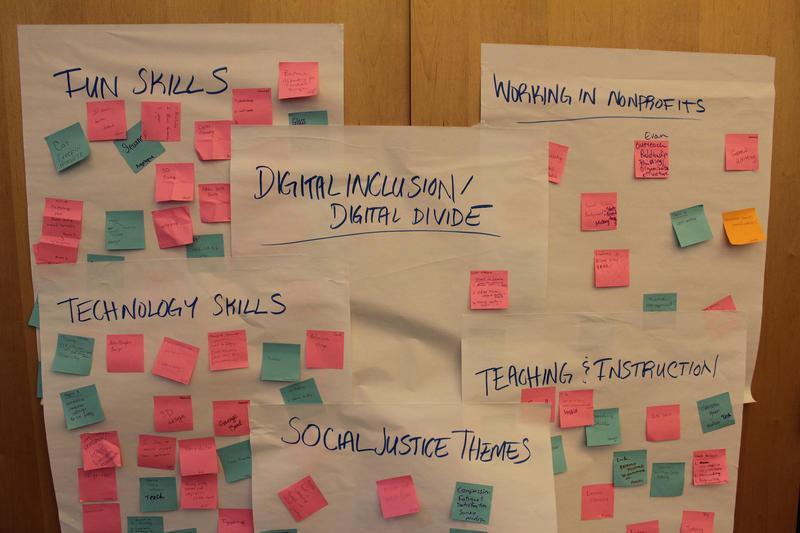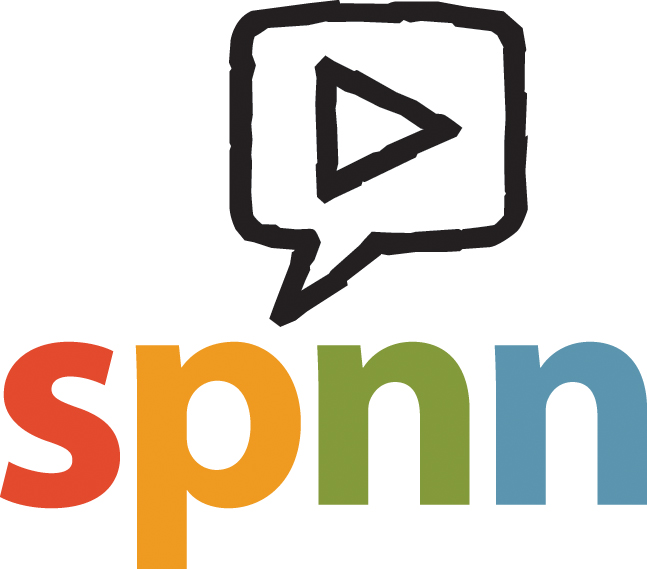Member Corps Day Trainings

We know that CTEP AmeriCorps members will have formative experiences at their sites during their year(s) of service, however we also believe fully in John Dewey’s adage that “We do not learn from experience... we learn from reflecting on experience.” For this reason CTEP Members attend “Corps Day” trainings twice a month held at our partner sites across the Twin Cities. We take these trainings seriously and want to ensure that AmeriCorps members receive the best possible professional development and opportunities to develop a community within the cohort. The Corps Day trainings provide thoughtful professional development in the areas of digital literacy instruction, public leadership, cross-cultural competency & social justice, and non-profit volunteer program management. Through these trainings we hope to leverage the agency and leadership of CTEP AmeriCorps members and in turn the people they serve. Members also do this through a year-long group civic engagement project.
We want members to leave the program with these core enduring understandings:
- Regardless of previous digital literacy levels, people have the capacity to learn new skills or acquire knowledge despite, and in some cases because of, barriers they have faced.
- Poverty, education, race, gender, sexuality, and historical/community trauma are intrinsically related to digital access and literacy.
- One must intentionally learn about and engage with a community in order to appropriately respond to its needs.
- Systemic change happens through individuals, civic engagement, social service, and advocacy.
To that end, we structure the Corps Day trainings around some key questions within each training area. Members participating in the CTEP AmeriCorps program can expect to engage with the questions below at any one of the Corps Day trainings.
Digital Literacy Instruction:
How can we address students’ real or stated technology needs while also teaching and measuring basic digital literacy standards?
How can we use the Northstar standards and other assessments as a tool while avoiding teaching to test?
How do we convince people that technology is relevant and useful to them?
How do we give youth and adults the confidence and curiosity to problem solve in technology-rich environments?
How can we facilitate an intentional learning environment and prepare relevant lessons for students in a multilevel class?
How can we create a continuum of digital learning, starting with basic digital skills and ending with complex media literacy?
How do we create opportunities for high level students to assist in the classroom in order to encourage further growth and community in a multilevel class?
Public/Civic Leadership & Community Building:
How can we emulate leadership skills gleaned from conversations and interactions with community activists, organizers, educators and artists?
How can we enhance and bolster our overall service experience through volunteer projects that fall outside of the realm of digital literacy but relate to education, economic and social justice?
How can we educate the public and policymakers about the necessity of widespread technology access, particularly in underserved communities?
How can we brainstorm and create projects that allow us to engage outside of our service sites and explore new solutions to existing gaps in digital literacy?
How do we seek existing contacts and partners for project implementation in order to encourage cross-agency collaboration?
How do we effectively problem solve when coming up against hurdles in a group project?
How does our year of service fit into a national service and how might it influence our dedication to community building in the future?
Cross-Cultural Competency and Social Justice
How can we strive to make our technology, lab space and classes accessible for all people within a community, particularly those traditionally disenfranchised?
How do we get to know ‘the other’ through exposure to populations with vastly different perspectives than ourselves (including within the cohort) in order to gain greater understanding of our world?
How do we conceptualize our multiple social identities, including race, gender, sexuality, ethnicity, religion and ability? How do we understand the role of identity salience in our interactions with others?
How can we situate ourselves to critically view media and understand the intricacies of knowledge production and representation?
How do we gain an understanding of the underlying power structures that exist to disempower the populations with whom we work?
How do we conceptualize the role of digital literacy instruction within the larger framework of educational and economic justice?
How do we effectively respond to current events, and what is the role of digital literacy instructors in addressing current political and cultural landscapes?
Program & Volunteer Management:
How can we recruit within the communities we serve in order to create more accessible and relevant computer classes?
How do we utilize outreach efforts to increase the number of community members participating in classroom and lab settings?
How can we recognize gaps in current digital literacy programming and effectively construct and design new classes to bridge that gap?
How can we ensure existing and new volunteers find meaning in their work, grasp the importance of digital literacy, stay engaged in programming, and feel valued?
